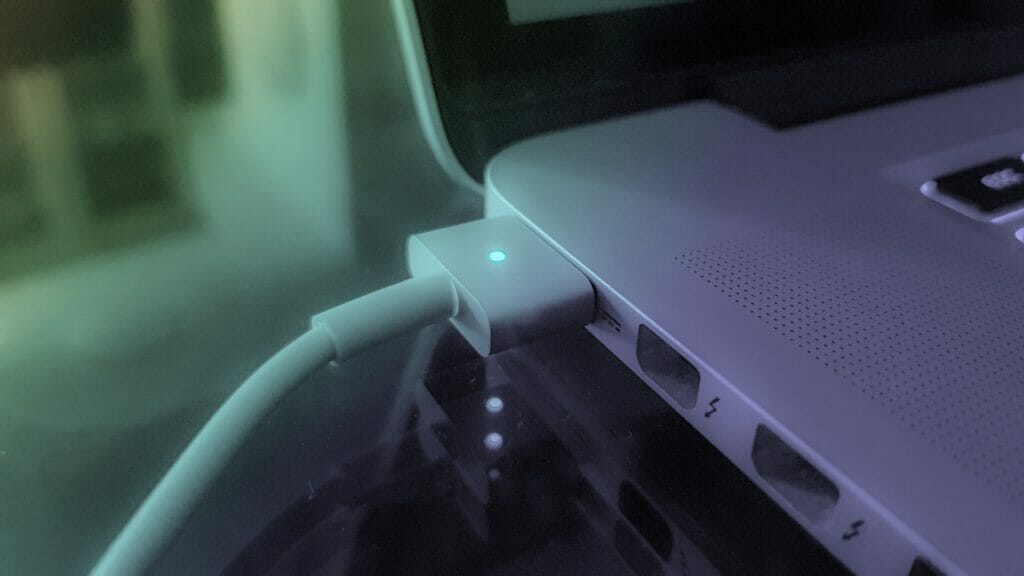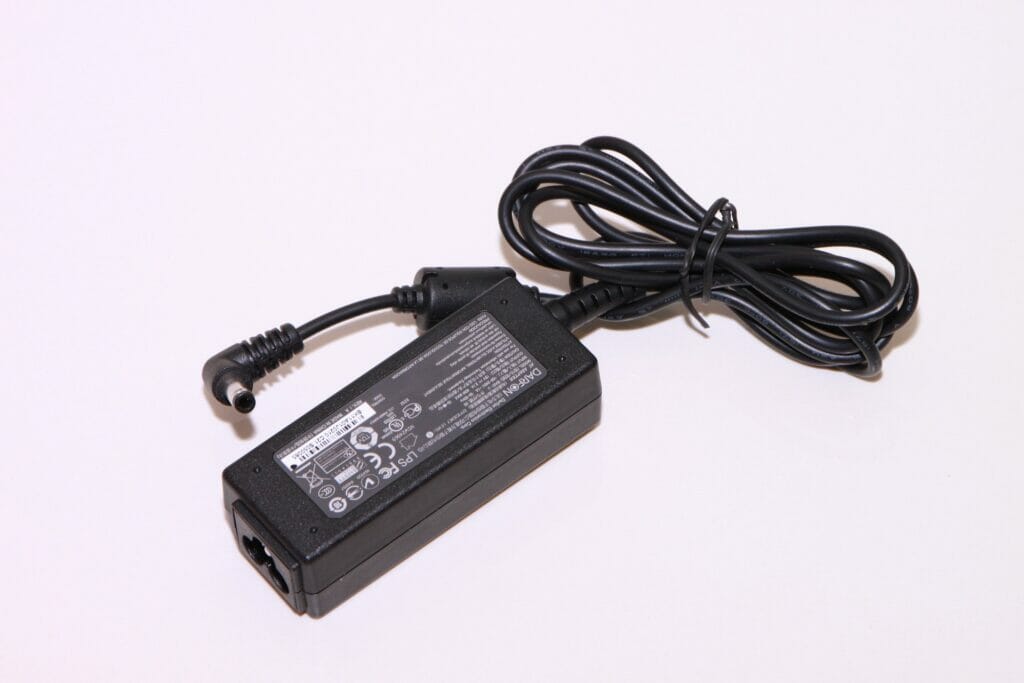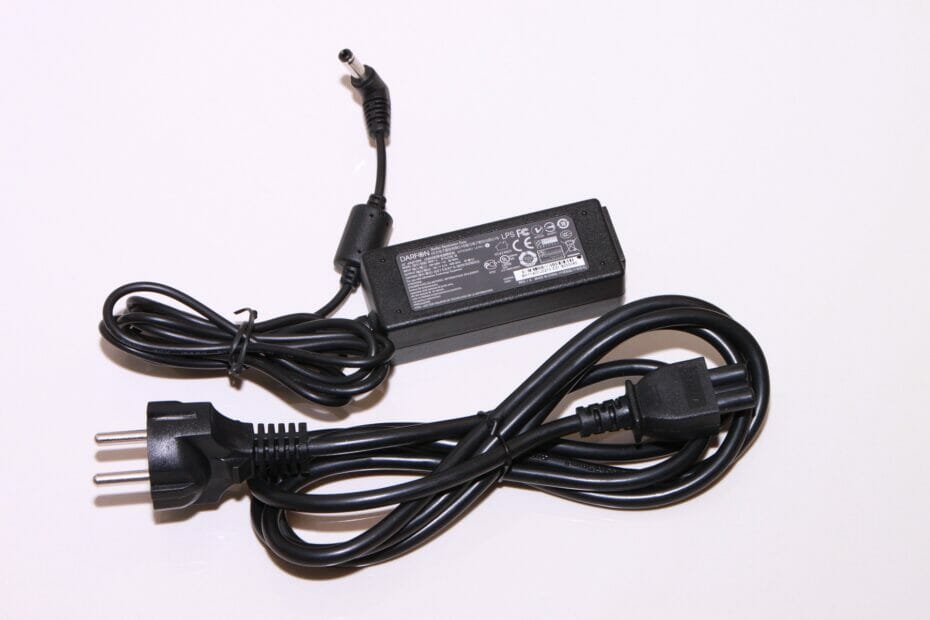What Is The Wattage Of A Laptop Charger?
People tend to think of their overall performance when it comes to laptops. But there are other important things to consider when buying a laptop charger. The wattage of a charger is one such thing, and it can significantly impact how well your computer runs—and what kind of safety measures it has in place.
The wattage of a laptop charger is the power your laptop uses. It’s measured in watts; the higher it is, the better. For example, if you have a high-performance gaming computer and want to play any games at its highest settings without lag, having as much wattage as possible will mean better performance.
However, there are some cases where having too much wattage can be bad for your computer. It might overheat or cause other problems with its hardware components due to excessive stress being put on them from too much electricity flowing through them at once (especially if they’re not designed to handle high amounts).
You should check your computer’s user manual if you need clarification on what wattage you should look for in a laptop charger. This will tell you what wattage it needs to operate correctly and safely.
How Many Watts Does a Laptop Charger Use?
Wattage depends on the capacity of your battery. A typical charger might be between 40 and 150 watts. For a smaller battery, it will only draw 60 watts.
Gaming laptops often come with built-in phone charger ports, but most desktop computers don’t.
Check Your Charger’s, Power Brick
The easiest way to check your computer’s battery life is to take its power cord and look for its Wattage label. If you see a “W” symbol on the end of the cable, you know that your laptop charger has a wattage rating.
You can usually figure out the wattages of your computer’s power adapters by looking at them. Don’t worry if you can’t figure out the wattages though. There are other ways to find your laptop’s wattage without opening up your power brick.
Calculating Laptop’s Wattage
To find out how much power your notebook draws, simply multiply the number of milliamps (mA) by the number of Voltes (V). In this case, we’ll assume that the mA value is correct, so we can focus on the V values. We’ll also assume that the adapter is rated at 12V, not 19.5V. Plugging these values into our formula, we get 65.13 Watts. That’s the wattage being consumed by your notebook.
Official Website
If you are looking for your laptop’s wattage and cannot find it anywhere else, you should check out the manufacturer’s website. You can do this by typing “laptop wattage” into the browser bar. This usually brings up the manufacturer’s site, where you can find your laptop’s exact specifications.
However, if you still need help finding your laptop’s wattage, you can always look online for it. There are many places where people post their laptops’ wattages. For example, you could type “laptop wattage calculator” into the browser bar and see what pops up.
You can also use Google to help you locate your laptop’s wattage. Type in “laptop wattage.” Then, scroll down to the bottom of the results, and you’ll see a link called “Laptop Wattage Calculator.” Clicking on this link will take you to another website where you can enter your laptop’s model number and see how much power it uses.
Knowing your laptop’s power adapter’s wattage is important because it can help prevent your computer from overheating.
What Does A Laptop Charger Wattage Mean?
Wattage is the amount of power a laptop charger can deliver. The higher the charger wattage, the more powerful it is and the more juice it will provide. A laptop’s power supply converts electricity from its wall socket into DC voltage to run your device. The amount of power delivered by this conversion process is measured in watts.
How Much Power Does A Laptop Consume Per Hour?

The power consumption of an AC adapter depends on its watt rating and laptop voltage requirements. The higher the watt rating, the higher the power consumed by the adapter.
Power is measured in watts, so you can calculate how much energy your laptop charger consumes by multiplying its voltage by its current. For example: if you have a 120-volt (V) AC adapter that draws three amps (A), your total power usage would be: 120 V x 3 A = 360 W.
Is There A Minimum Wattage Requirement For Charging A Laptop?
Most wall adapters or portable chargers need to output at least 30W or 31W to provide enough power for most laptops. However, what if we’re trying to charge a laptop with less power? Does there exist a minimum watt requirement?
The answer is yes, but it depends.
Typically, a wall adapter or battery pack has to output at least 25 watts or 26 watts to give your laptop enough power to run without drawing too much current from the wall socket. However, this will only work if your computer draws more energy than it needs.
For example, suppose you have a large laptop or are running heavy-duty applications. In that case, a 30-watter might not be able to fully recharge your computer because it needs more capacity to provide extra power. In this case, you’ll want to look for a wall adapter that outputs at least 45 or 46 watts.
Can I Charge The Laptop With A Lower Wattage Charger?
It is not safe to use a lower-wattage charger on your laptop. A laptop charger is designed to deliver a specific amount of power, and using one that has lower wattage will not be able to provide the energy needed to charge your laptop.
A 60-watt charger for laptops that needs 90 watts wouldn’t be practical. This will result in an overheated or even damaged battery, a shortened battery life, and some miserable people who want their laptops charged up in time for work tomorrow!
What Are The Risks Of Using A Low Wattage Charger On Your Laptop?
The risk of using a lower-wattage charger is that it may charge your laptop’s battery slower than a higher-wattage charger. Using a lower-wattage charger will also reduce your battery life and can even cause damage if you accidentally plug in the laptop while on or in sleep mode.
Can You Use A Lower-wattage Power Adapter Without Damaging Your Laptop?

It’s possible to use a lower-wattage charger, but it may take longer to charge the laptop. On the other hand, using a higher-wattage charger will shorten charging time and increase overall battery life. However, using an overcharged laptop battery can damage it over time.
If you want to charge your laptop faster than usual, use a high-capacity power bank or external battery with at least 10 watts of power output per port or more. These devices are designed specifically for charging smartphones and tablets because they can provide much more power than most wall chargers that come out of the box.
